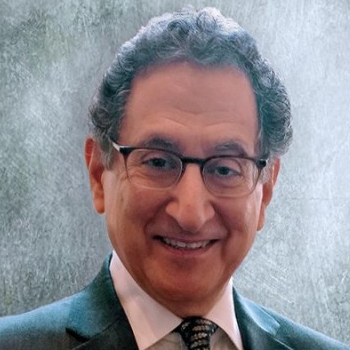
Morocco’s New National Service Can Build Generations of Employable Patriots
To many, the proposed law on national conscription is less about enabling youth and more about protecting the power structure in Morocco. Morocco has an army; it is well trained; it is large and expensive to maintain, and having thousands of young people rotating in and out on an annual basis may not be the most efficient use of its capabilities. In addition, some warn that giving weapons training to those not committed to a military career may be a security risk over time, especially if there are no changes in the economic prospects of those youth when they complete their year of service.
If one looks at youth development models in other countries, there is more integration between the time spent in military service and the acquisition of skills that equips youth with tools for securing jobs. In fact, there is an array of choices and training to satisfy the desire to inculcate values and enable post-training employment. So it may be in Morocco’s economic, political, and security interests if it recasts the military service program into a national service program that promotes patriotism and citizenship, and has the capacity to enable participants to learn to respect their fellow citizens, develop marketable skills, acquire team building and leadership experience, and add meaning to their lives, their families, and others in the community and the country.
So, what are Morocco’s options if it wants to have patriots who are employable citizens? First of all, the program must have meaning and relevance. If you want citizens, then you must motivate them beyond the simple salary of military service by sharing with them a vision of how they can advance their country by developing their work-related talents. This must be driven by leaders who share their clarity of purpose and commitment to excellent results. Start with a well-thought-out strategy with several streams that can be managed effectively by a partnership of the government and private sector, including NGOs. It also requires a vision that is communicated effectively to all Moroccans especially young men and women, their families, marginalized teens, and school drop-outs, unemployed university graduates, and civil society.
What would the program look like? Assuming it is mandatory to participate, the vetting should begin in secondary school or with 18 year-olds who have not finished high school. Morocco should have had enough experience by now with testing trainees to determine their likely assets and how these can best be developed. The international development community has plenty of intake models that can be useful. As placement results are measured over time, students would be encouraged to choose among several options: military service in select specialties, STEM-related study leading to a form of an associate degree, and skills training tied to internship programs. Other details relate to how to promote collaboration between urban and rural constituencies, how best to encourage the participation of young women and girls, and blending the talents of university graduates with younger Moroccans.
Participants could be channeled into one or two-year incentivized programs such as those of the High Atlas Foundation, Book Caravan, or CorpsAfrica that can be extended into other areas of the country utilizing the developing talents of youth. It’s already being done in the private/NGO sector and all of these are scalable and impactful projects.
The question of what to do with school dropouts can be handled in the same way: testing for skills that do not rely solely on literacy; interviews to determine placement priorities; and subsidies in the form of military salaries or work-study grants to participate. There may be many talented youths in the informal sector who could make important benefits to the country if given training and opportunities.
The larger question here is one of leadership development. Perhaps the first year should be spent training cadres of military and non-military staff on various aspects of leadership, team building, metrics and evaluation, human resources management, talent retention and promotion, and administrative skills. These staff should also be given incentives to understand that their work is essential to building the talent of the next generation of Morocco’s leaders.
As mentioned in Part 1, King Mohammed VI said, “We cannot let our education system continue to produce unemployed people, especially in certain branches of study, where graduates — as everyone knows — find it extremely hard to access the job market.” Based on years of experience, the need here is far beyond well designed and equipped programs, in which Morocco has a spotty record of achievement. It is the critical development of teachers, trainers, managers, and specialists at all levels who are the key to the success of this integrated national youth service model.
In discussions with Moroccans about this concept of employable patriots, they were quick to point out that the needs of the military in this scheme should not be minimized. In fact, the military faces an uphill challenge in recruiting, training, and retaining youth with critical IT skills ranging from interpreting satellite imagery and reconnaissance to cyber-security across all of its operations and beyond. This is an area that does not require a university education, but a comprehensive program utilizing soft and hardware skills that youth seem to manage with greater ease than others. And the need in the private and public sectors will only continue to grow.
This is all doable, practical, sustainable, and relevant to the present and future of Morocco. If the government is ready to foot the costs of pulling willing and less-than-willing youth into an ill-defined military experience, wouldn’t it be more efficient and effective to take a year to build a strategy, leadership team, training cadres, and set up a centralized and social media savvy center for promoting future employable patriots? Then the private sector and CSOs could become partners in a deep and committed resolution to Morocco’s youth and contribute their resources and expertise.
Again, if the government is seriously committed to programs that will empower youth with values and skills to become more able citizens and economic engines, then the development of a viable, sustainable, and action-based comprehensive strategy for youth development should be based on a broader-based vision, integrating military service, national service, and educational reform to achieve these outcomes.
Now is the time to seize the future for Morocco and its youth.

